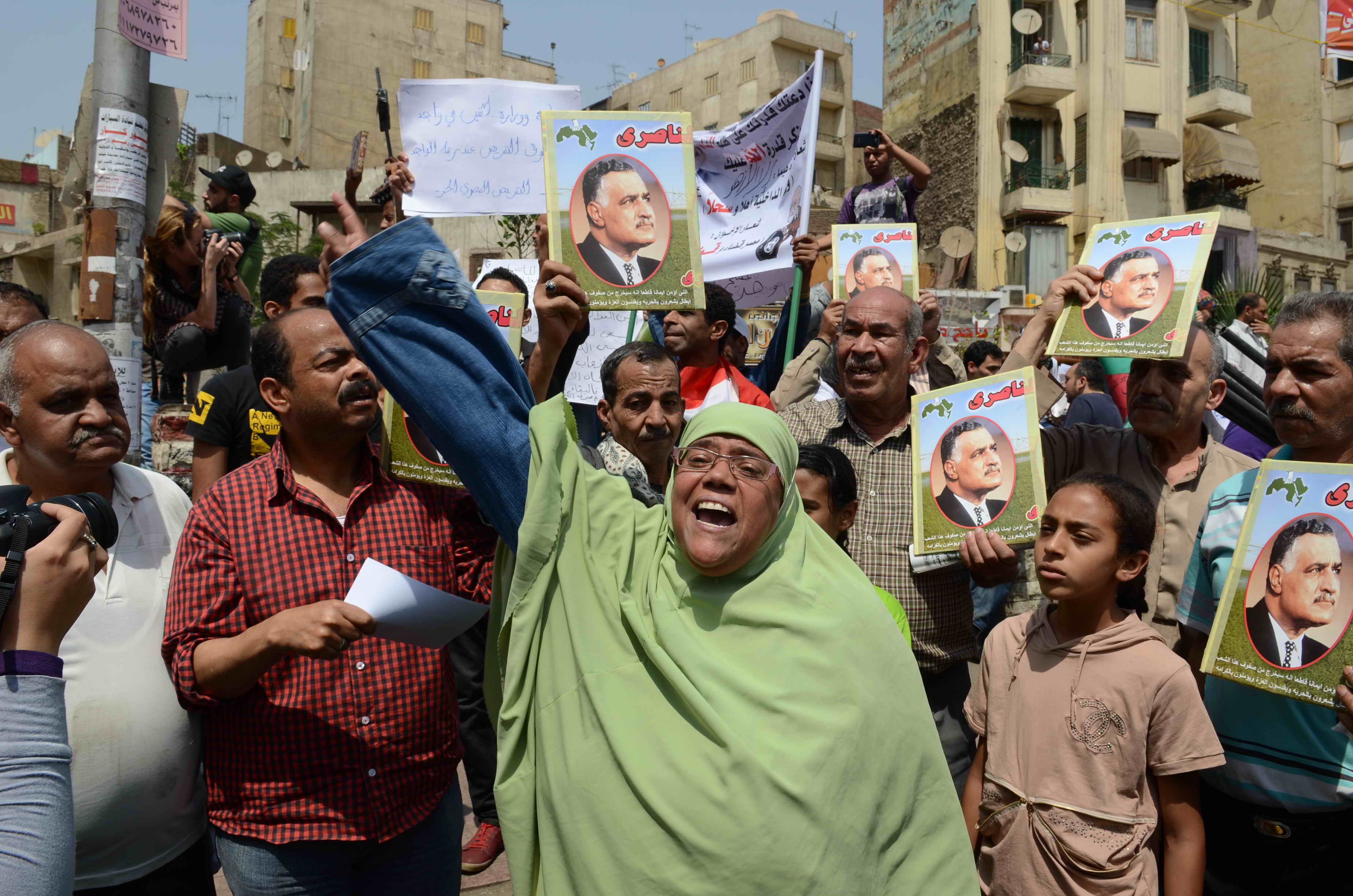Traders at the decades-old Balaa used-clothes market are anxious about their future
CAIRO: This is not just any second-hand clothes flea market. It’s a market with an edge, attracting film stars, high ranking officials and the crème-de la crème who have all been attracted to this unique ad hoc extravaganza – Suq Al Balaa.
As you drive from Zamalek up 26th of July Street towards Ramses Square you can’t miss the clothes shops lined up on both sides of the road, nor the lines of racks crowding the sidewalks.
At first glance you’d think the market carries cheap stuff. However, the name “balaa -meaning “old or “second hand – doesn’t do it justice.
Balaa is not your run-of-the-mill second-hand suq. True you can get some used clothes, but the overwhelming majority of windbreakers, trousers, suits, skirts, jeans, blouses, pullovers, shirts and dresses are unsold remains of factory produce, overstocked items, flawed pieces and old-fashioned cuts that have poured in from Germany and Belgium and the rest of Europe to cater to the needs of the Third World, offering low-priced “quality garments.
Suq Al Balaa is, however battling to survive amid new market changes, which traders say, are putting the future of the outlet at risk.
The shops that have been operating for the past 25 years, were originally mechanics’ workshops employing migrant rural workers from the villages of Upper Egypt.
When former President Sadat kicked off his Open-Door economic policies in the mid-1970s, some of these workers sold their land, bought their employers’ workshops and turned them into outlets for used items imported and distributed at the Port Said free zone. When the import of European clothes decreased, they started carrying European “leftovers which were sorted and shipped in different containers to be sold per ton.
“It’s the place to buy very cheap and reasonably expensive stuff, says Alaa Hamed who walked from shop to shop with his sister Laila looking for a shirt.
“I come here to buy cheap things like training suits, shirts, shorts and pajamas that I don’t tend to pay much for, said Alaa, “But I also visit the market when I need rare pieces like a jacket or a suit. If you look around carefully you can get good deals paying LE 200 or less for something worth LE 600.
Film stars also tap into that cheap treasures of Balaa to pick up period costumes for their roles and gala parties. Why pay LE 6,000 if you can get it for LE 300?
Fashion-starved teens go for looks rather than quality or affordability, while families seek clothes to flaunt during Eid Al Adha.
Yet traders remember the old days when the market carried only used items, and buyers walked stealthily for fear of getting caught by friends and relatives who dismissed the place as the market for the poor and needy.
Now only certain socio-economic classes can afford it. According to Sabry Amer, a trader, these are the top and the middle classes. “It isn’t a second hand items suq in the full sense of the word, says Sabry. When the market fortunes were reversed with the introduction of free-market policies, some traders were not optimistic that new changes would be favorable.
“During our heyday, recalls another trader Adel Amin, “let’s say, 10 years ago, we couldn’t cope with demand.
Amin added: “Now demand has plummeted since Chinese products began flooding the country and with more rivalry between Egyptian factories. The government has also instated restrictions on the quantities brought from Germany by heavyweight importers in Port Said. The introduction of the euro has raised prices. ”
Another trader Gergis Wadee added: “If you want to say that the market is collapsing, you can say it with confidence now. I and some other traders are closing down. We’re not making enough money to justify our expenses.
“Some traders are still operating because they are dealing in low-quality items we tend to turn down. Also some of them are falling into debt and selling everything cheap to make enough cash to pay checks, he said. “They also supply small vendors with stock to sell on the sidewalk for peanuts. People prefer the cheaper prices and in the absence of any real systematic dealings we definitely lose.
Amer chimes in: “Although this is all true, the effects of the new market trends is a matter of prediction. Balaa is still unique. Chinese goods, especially the ones that come in big quantities, are similar in type and style. The local stuff is fashionable but expensive. The imported is unaffordable by the majority. None of these can really rival the variety and value of Balaa.
The traders are also frantic about restrictions imposed by the council, making them suspicious of journalists who are a potential threat to their livelihood.
“Please, no pictures, said one shop assistant. “When a TV station once filmed the suq we faced severe inspections the next day.
On a Friday after prayers, and although the market is abuzz with movement and activity, they couldn’t hide their fear that change is coming.
“I really don’t know what out fate will be, said Sabry. “But we are traders and whatever sells will certainly be our focus.

